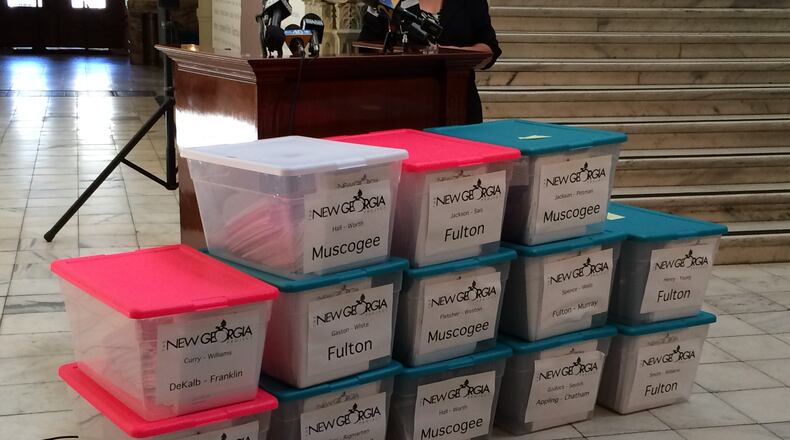The State Elections Board on Wednesday referred 53 allegedly forged voter applications to the Attorney General's Office for possible prosecution, essentially closing a 2014 fraud investigation involving a massive registration drive by the upstart New Georgia Project.
The decision allows the office to decide whether to prosecute those involved. It provided little drama compared with the fight from three years ago, when the project's months-long statewide registration effort launched by then-state Democratic House Minority Leader Stacey Abrams devolved into accusations of voter fraud, counteraccusations of voter suppression and a lawsuit won by Georgia Secretary of State Brian Kemp over allegations that he and local elections officials misplaced thousands of registration forms submitted by the project.
Kemp, a Republican, is now running for governor next year, as is Abrams.
The office had previously said it had confirmed a few dozen cases of forged voter applications among the 87,000 registration forms the group said it submitted as part of its drive. Investigators said then --- and repeated Wednesday --- that they had no evidence of conspiracy by the group's leaders, but that the forged applications seem to be the individual work of about 25 canvassers paid by the group during its registration drive.
They had kept the case open, however, to allow more time to fully investigate fraud claims against some of the people who registered voters on behalf of the project. Officials looked at 208 cases in all for potential fraud. Investigators were only able to interview 14 of the canvassers; they were not able to locate the other 11.
Instances of forged voter registration forms are not unusual in Georgia, but what made this case unique was the scope of the reported problems: 16 counties reported concerns to the state.
About the Author
Keep Reading
The Latest
Featured




